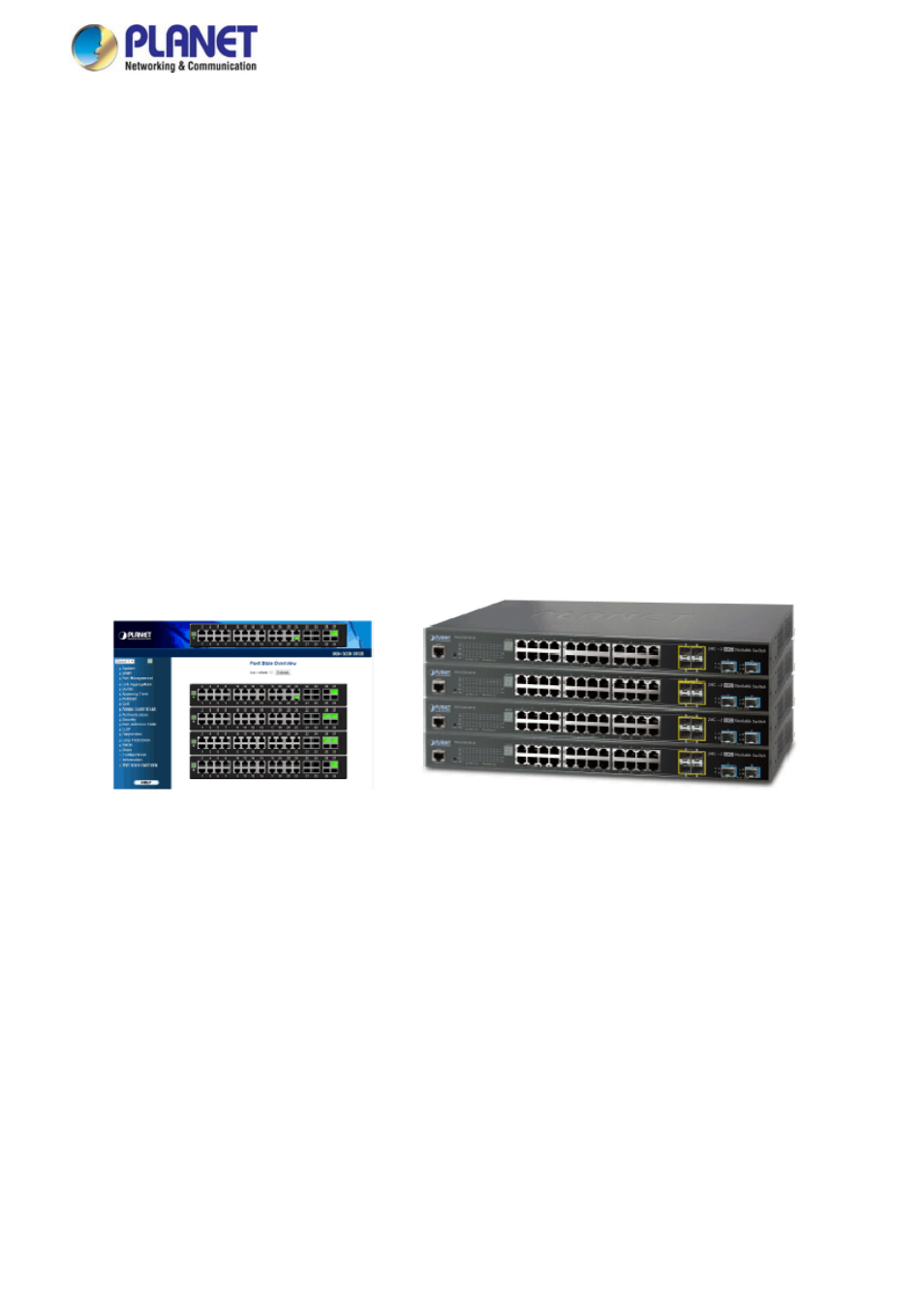2 product description – PLANET SGS-5220-24P2X User Manual
Page 11

User’s Manual of SGS-5220 Series
1.2 Product Description
High-Density, Resilient Deployment Switch Solution for Gigabit Networking of Enterprise, Campus and Data Center
For the growing Gigabit network and IoT (Internet of Things) demand, PLANET has launched a new-generation Stackable
Gigabit Switch solution, the SGS-5220 switch series, to meet the needs of enterprises, telecoms and campuses for a
large-scale network deployment. The SGS-5220 switch series is Layer 2+ Managed Stackable Gigabit Switch, which supports
both IPv4 and IPv6 protocols and hardware Layer 3 static routing capability, and provides 24 10/100/1000Mbps Gigabit
Ethernet ports
, 4 shared Gigabit SFP slots, 2 10G SFP+ uplink slots and another 2 dedicated 10G SFP+ stacked
interfaces
for stacking with the series of switches. Up to 16 units, 384 Gigabit Ethernet ports and 32 10Gbps SFP+ slots can be
managed by a stacking group and you can add ports and functionality as needed.
Efficient Single IP Management
The SGS-5220 series applies the advantage of the stacking technology to managing the stack group with one single IP address,
which helps network managers to easily manage a stack of switches instead of connecting and setting each unit one by one.
The stacking technology also enables the chassis-based switches to be integrated into the SGS-5220 Managed Switch series at
an inexpensive cost.
Highly-reliable Stacking Ability
Through its up to 40Gbps, bi-directional high bandwidth tunnel and stacking technology, the SGS-5220 switch series gives the
enterprises, service providers and telecoms flexible control over port density, uplinks and switch stack performance. The stack
redundancy of the SGS-5220 switch series ensures that data integrity is retained even if one switch in the stack fails. You can
even hot-swap switches without disrupting the network, which greatly simplifies the tasks of upgrading the LAN for catering to
increasing bandwidth demands.
11
